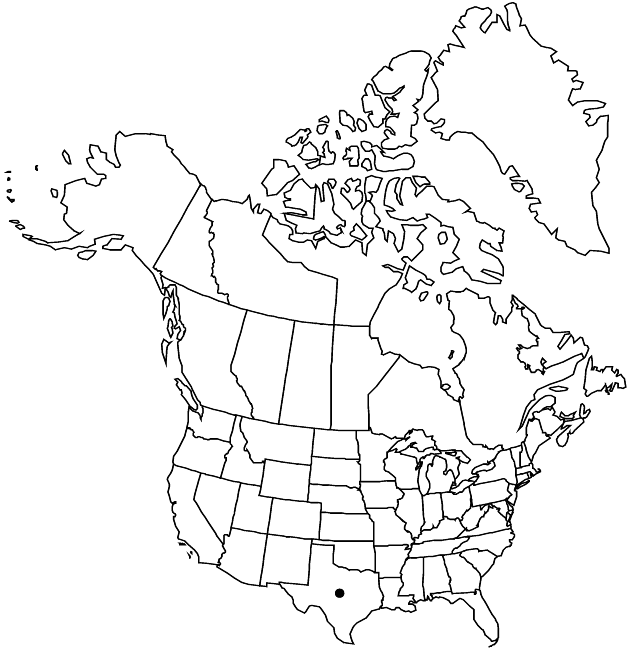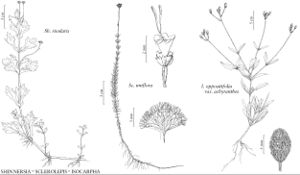Isocarpha oppositifolia var. achyranthes
Syst. Bot. 6: 280. 1981.
Stems: nodes without axillary fascicles. Leaves mostly sessile, sometimes ± petiolate; blades mostly 2–3 (–5) cm × 5–8 (–15) mm, without basal auricles. Heads pedunculate (peduncles 2–5 cm) or subsessile (in groups of 2–5). Corollas ca. 1.5 mm. Cypselae ca. 1.5 mm. 2n = 20.
Phenology: Flowering (Jun–)Oct–Dec.
Habitat: Thickets, clay dunes, shrublands
Elevation: 0–10 m
Distribution

Tex., Mexico, Central America, South America
Discussion
The Texas plants are known only from around Brownsville in Cameron County. D. J. Keil and T. F. Stuessy (1981) identified them as var. oppositifolia, noting that they are “probably introduced” there. Distribution of the species continues from Cameron County southward along the Gulf coast of Mexico in Tamaulipas and Veracruz, and the Texas plants are similar to the Mexican ones, which have been identified as var. achyranthes. Abundant Texas material, as described above, fits the description of var. achyranthes, as delimited by Keil and Stuessy.
Selected References
None.
Lower Taxa
"fine" is not a number.
